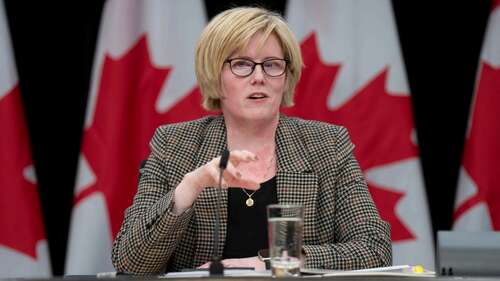The 61 organizations that govern amateur sports across the country face financial peril if the federal government doesn’t address a funding crisis decades in the making by increasing financial support, according to a new report.
Funding for national sport organizations (NSOs) has been unchanged since 2005, according to a study commissioned by the Canadian Olympic Committee and Canadian Paralympic Committee and completed by the financial consulting company Deloitte.
The study is scheduled to be released on Tuesday. TSN obtained an advance copy.
Deloitte wrote in its study that a $104 million increase in annual federal funding for NSOs is required to avoid a substantial reduction in the services and programs operated by the organizations.
A five-year forecast shows that NSOs will run a deficit of $134 million, Deloitte said.
Canadian NSOs have been struggling in recent years amid worsening finances. While the federal government’s funding to NSOs has been unchanged for nearly two decades, costs for travel, logistics, and proper food and training for athletes has skyrocketed.
Months before the Summer Games in Paris, NSOs including Cycling Canada and Climbing Canada have laid off staff because of their financial crises, according to sources familiar with the matter.
“It’s dire and I think there’s a very real possibility that some of us will have to shut our doors if we don’t get help from the government,” the executive director of one NSO told TSN.
The executive said they did not have the permission of their board to speak critically of the federal government, which provides the vast majority of the NSO’s annual revenue.
 Minister of Sport and Physical Activity Carla Qualtrough speaks about measures the government is taking to improve safe sport, Monday, December 11, 2023 in Ottawa. (Adrian Wyld / The Canadian Press)
Minister of Sport and Physical Activity Carla Qualtrough speaks about measures the government is taking to improve safe sport, Monday, December 11, 2023 in Ottawa. (Adrian Wyld / The Canadian Press)
Federal sport minister Carla Qualtrough declined to comment, a spokesperson said.
Canadian Olympic Committee president David Shoemaker said in an interview with TSN that the COC and CPC commissioned the study because they wanted to approach the federal government with hard data when asking for more funding.
“For the most part, for the national sports organizations that depend on federal funding, this has become very serious and not sustainable,” Shoemaker said. “I worry about what will happen with many of these organizations post-Paris.
“Normally, a few months from an Olympic Games we’re all about the amazing performances and want to talk about stories like the Canadian women’s soccer team defending their Olympic gold medal… there’s a bit of a reluctance to say, ‘Hey Canada, there’s something underlying this that’s a little bit serious… If you want to see it sustain, then we’ve got to add a significant amount of funding.’”
Shoemaker said Australia’s government contributes twice as much federal funding for amateur sports as Canada does, while the U.K. government funds triple the amount.
According to the Deloitte study, 90 per cent of NSOs rely on federal funding as the primary source of revenue, while the purchasing power of NSOs (thanks to inflation) has plunged by 33 per cent since the last increase in funding in 2005.
Volleyball Canada president Mark Eckert said his federation has been financially stable since making the decision in 2018 to model itself after for-profit businesses. That means volleyball players on Canada’s national Under-21, Under-19, and Under-17 teams pay $8,000-$10,000 per year to be on the national team. Eckert said Volleyball Canada now offers human resources help to other struggling NSOs.
At Canada Basketball, chief executive Michael Bartlett said that while the federation is sending a “Dream Team” of men’s national team players to compete at the Paris Olympics this summer, that may be a “one and done” situation.
Unless the federal government increases its funding for NSOs, it’s questionable Canada Basketball will be able to afford to send its homegrown NBA stars to the 2028 Olympics in Los Angeles.
In 2021, the federal government provided $5.1 million to Canada Basketball, 52 per cent of its $9.9 million budget. This year, the federal government is providing $3.9 million, 28 per cent of the federation’s $16 million budget.
For the past several years, Canada Basketball has dipped into its cash reserves to fund the national team programs. By 2028, those reserves will be tapped out, Bartlett said.
“We’ve got the dream of winning multiple medals in the Olympics… but can we sustain that dream past Paris and into the L.A. Olympics?” Bartlett said. “Unfortunately, I think what you may see even from our own program is that our dream might not be able to be fulfilled unless our government at least keeps pace with inflation.”



